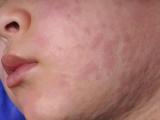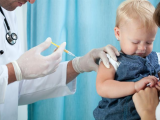Oct 7, 2011
Sweden begins compensating pandemic vaccine narcolepsy patients
Some Swedish children who experienced narcolepsy after receiving the 2009 H1N1 vaccine Pandemrix are receiving an initial $7,340 in compensation, The Local, an English-language Swedish news outlet, reported today. The details were first reported in Dagens Nyheter, Sweden's largest daily newspaper. Twelve families have been approved for compensation among 118 reported cases so far. Anders Ohlen, chief executive officer of a Swedish insurance company handling the claims, told media outlets that the initial amount is in line with other severe conditions such as deafness and paralysis and that families will also be reimbursed for treatment, medications, and travel for care. He added that when the children turn 18 they will be assessed again to determine if further compensation is needed, which could include loss of future earnings, if appropriate. The insurance company has earmarked about $21.7 million for the children who came down with narcolepsy after receiving the vaccine. Earlier this week the Finnish government said it and an insurance company group would pay for lifetime medical care of patients who have narcolepsy linked to the pandemic vaccine.
Oct 7 Local story
WHO reports on measles activity in three regions
The World Health Organization (WHO) said today that several large measles outbreaks are occurring this year in three of its regions: the Americas, Europe, and Africa. The largest outbreak is hitting the Democratic Republic of the Congo, where more than 103,000 measles cases, including 1,100 related deaths, have been reported so far. Elsewhere in Africa, Nigeria has reported about 17,400 cases, while Zambia and Ethiopia have each reported thousands of cases. The next biggest hot spot is the European region, where the case count has grown to about 26,000, with France hardest hit. The most recent outbreak was reported in Israel, which had 12 infections in September. In the Americas, the WHO noted that the last endemic measles case was reported in 2002, but several recent outbreaks have been linked to cases imported from other regions. Quebec, Canada, is reporting the largest outbreak, with 742 illnesses and 89 hospitalizations. Other affected countries include the United States (213 cases), Ecuador (41), Brazil (18), Columbia (7), Mexico (3), and Chile (6). The WHO urged countries to ensure that they reach 95% measles vaccine coverage across all groups up to age 15 years to avoid outbreaks and exporting the virus to other countries. The agency also reminded travelers to make sure they have had two doses of a measles-containing vaccine before departing.
Oct 7 WHO statement
Cholera prompts emergency response in Central African Republic
A cholera outbreak in the Central African Republic has taken 14 lives, prompting an emergency response by the United Nations Children's Fund (UNICEF), with the government and other groups, UNICEF said in a press release this week. The outbreak, which was announced Sep 30 by the country's health ministry, has struck villages along the banks of the Ubangui River, about 80 kilometers south of the capital, Bangui. Tanya Chapiusat, UNICEF representative in the Central African Republic, said the affected region includes about 500 villages spread along the river and in forest clearings. "UNICEF and partners are assisting the government's health teams with efforts that have to be mobile and flexible to reach populations at risk," she said. UNICEF said it has sent specialized water and sanitation, health, and communication teams to the region and has provided cholera kits to treat 700 people. The agency hopes to reach 60,000 people in the affected regions over the next few days. "Because CAR has not had cholera cases in many years, people do not necessarily know what basic measures to take to protect themselves," making information efforts critical, Chapiusat said.
Oct 5 UNICEF press release
Meanwhile, the neighboring Democratic Republic of the Congo has had an increase in cholera cases in recent weeks, prolonging an outbreak that began in March, according to IRIN News, a service of the UN Office of Humanitarian Affairs. At least 6,910 cases and 384 deaths had been reported as of Oct 3, compared with 3,895 cases and 265 deaths as of Jul 20, the story said.
Oct 7 IRIN story
FEMA releases new National Preparedness Goal
The Federal Emergency Management Agency (FEMA) recently posted a completed version of the new National Preparedness Goal, the first item required under Presidential Policy Directive 8 on national preparedness, which was issued in March. Comments on a draft version of the National Preparedness Goal were due on Sep 2. FEMA said the goal, published Sep 30 on its Web site, builds on earlier work from various stakeholder groups, draws on past experiences with catastrophic events, and includes input from all levels of government, nonprofit organizations, the private sector, and individuals. The goal describes core capabilities for preventing a threatened or actual terrorist attack, protecting people and assets against an array of threats, mitigating loss of life and property during disasters, responding to catastrophes, and recovery. The goal notes that the capabilities are not targets for a single jurisdiction or agency, but depend on a national effort to involve the whole community. Threats covered in the goal include natural hazards, pandemic influenza and other infectious diseases, accidental hazards such as dam failures, weapons of mass destruction, and cyber attacks. The new goal will be regularly reviewed to make sure it is consistent with new policies, evolving conditions, and the National Incident Management System. The first review is due Nov 1, 2012.
National Preparedness Goal
FEMA Presidential Policy Directive 8 Web site



















